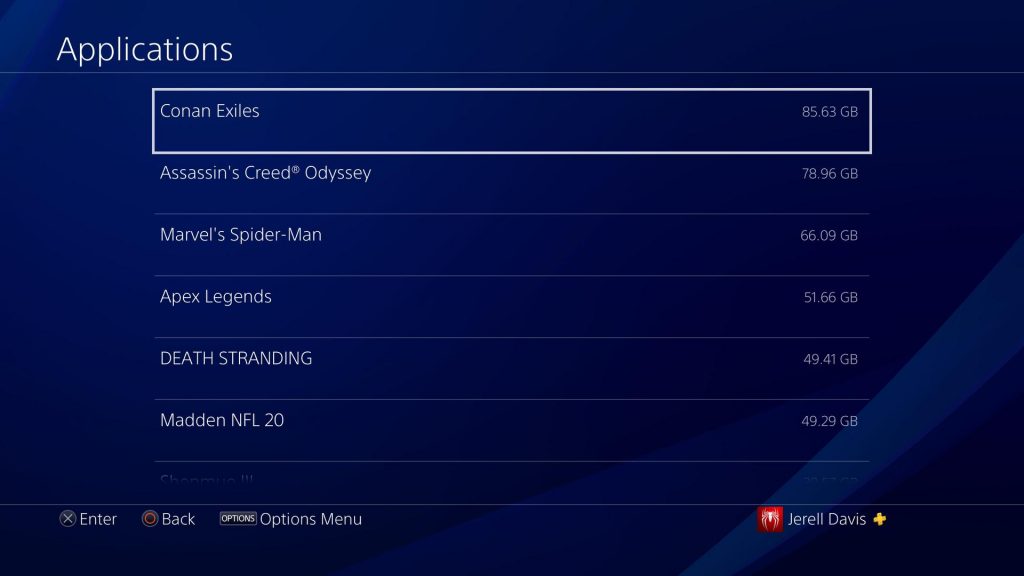Yes you should get a warranty for that new PlayStation 5, Oculus Quest, or Xbox Series X
Last week I bought Call of Duty Modern Warfare for the Xbox One X. I was looking forward to diving into some multiplayer when my eyes were drawn to the massive file size of the game download, over 150 gigabytes.
Hard drive space isn’t a problem for me on the Xbox One X. It comes with a 1 Terabyte hard drive and I have another 2 terabytes external drive attached to it. Speed isn’t a big issue either, I don’t have the fastest internet speed but it’s plenty fast for my means.
The pain of seeing that 150-gigabyte download size stemmed from the more hidden danger many of us internet service customers face, the dreaded 1 TB data cap that is all too common.
What is a Data Cap?
What is a Data Cap you say? Well if you live in the United States and get your internet through a provider like Comcast (Xfinity), CenturyLink, AT&T, or Cox Communications, you probably have one unless you are paying a premium price not to.
Generally, the data cap has a “generous” allotment of 1 terabyte per month. 1 terabyte is a lot of data, that’s 1000 gigs. Most people who use the internet daily for most casual forms of entertainment won’t come very close to that limit.
You could watch hundreds of hours of Netflix, play plenty of online games, stream music, etc. and you would be fine. 1 TB has been a pretty suitable limit for the majority of internet users over the last decade, my self included.
But this is no longer the last decade, as Bob Dylan famously said, “The times, they are a-changing.”
In recent times, I have become accustomed to data cap shenanigans. In the last year, after getting my Xbox One X and dropping cable tv, I have run up against my Xfinity cap often. I have had to learn to heavily monitor and manage my data usage every month.
I’m not alone in my experience and many more of you will be joining me in the coming months and years as internet data usage is on the rise at an increasing rate.
Not just gamers, everyone is using more data today than in the past
According to OpenVault who has been tracking millions of internet users and their data use habits for over a decade. Data usage is growing every year.
A median usage of 250 GB would represent a 24.9 % increase from the 2019 median of 190.7 GB. Using similarly historical factors for high volume subscribers, OpenVault expects that by the end of 2020 “power usage” of more than 1 TB per month will account for at least 12% of all subscribers, a 60% increase from EOY 2019, and that “extreme power usage” of more than 2TB will reach 1.4% of subscribers, an 80% increase from EOY 2019.
OpenVault research data posted on February 11th, 2020
In 2020 we are streaming movies and tv in 4K. Many internet users have dropped cable television for internet tv services such as Youtube TV, Sling TV, and Hulu Live TV.
In 2020 we are or will be downloading games with 4K textures and assets on our Xbox One X’s and PlayStation 4 Pro’s. Just the other day Call of Duty Modern Warfare, the game I just downloaded and spent 150 gigs of data on, came out with an update. The update was 70 gigs!
Games are getting bigger, Infinity Ward has just dropped an update that is bigger than most of the games we were downloading 5 years ago. The 1TB Xfinity data cap that seemed quite generous years ago now seems restrictive.
All of that and we haven’t even touched on the increased emphasis of video game streaming from services like Google Stadia, PlayStation Now, and Microsoft’s xCloud.
Let’s also factor in the increasingly popular gaming subscription models of services like Xbox Game Pass and PS Now that allow gamers to download as many games at they can handle.
Then don’t forget the free games we all get access to every month. Whether it’s through Xbox Live Gold, PlayStation Plus, Epic Game Store, Twitch prime, etc. etc.
All in all, this means we are downloading and using way more data than ever when it comes to video games and entertainment. If you own a top of the line gaming console or modern gaming PC, you are potentially downloading a number of games on a frequent basis in 2020 and beyond.
There is some hope for PlayStation 5 and Xbox Series X users
So what is a next-generation gamer to do? If we have games today that are as high as the 70-150 GB range does that mean next-gen we can expect to see games coming in even higher?
Maybe, maybe not.
All hope is not lost. Thanks to modern technology, hardware, and software innovations, there is some talk that the next generation may be able to lower game install sizes.
In an interview with Wired, PlayStation architect Mark Cerny talked about how the Solid State Drive of the PlayStation 5 can allow for smaller games sizes.
“If you look at a game like Marvel’s Spider-Man,” Cerny says, “there are some pieces of data duplicated 400 times on the hard drive.” The SSD sweeps away the need for all that duping—so not only is its raw read speed dramatically faster than a hard drive, but it saves crucial space. How developers will take advantage of that space will likely differ; some may opt to build a larger or more detailed game world, others may be content to shrink the size of the games or patches.”
Mark Cerny in an interview with Wired.com
More encouraging is what Wired and Cerny had to say about how the PlayStation 5 may be allowing gamers to install their games on to their console in innovative ways that could save data.
Sony is changing its approach to storage, making for a more configurable installation—and removal—process. “Rather than treating games like a big block of data,” Cerny says, “we’re allowing finer-grained access to the data.” That could mean the ability to install just a game’s multiplayer campaign, leaving the single-player campaign for another time, or just installing the whole thing and then deleting the single-player campaign once you’ve finished it.
Wired.com
If the PlayStation 5’s SSD really does encourage developers to lower game sizes and alter the way we install video games, those will be very helpful tools in navigating around data caps. The Xbox Series X is very likely to have similar functionality as it is also rumored to be using an SSD.
Sony and Microsoft have probably already considered how data caps could affect their business. If games are already starting to hover between 100 and 150 gigs, it stands to reason that another huge increase in games download sizes to say 200-300 gigs would be untenable.

With my Xfinity data cap of 1TB per month, if games were to commonly be in the 200 GB range, gamers like me would be limited to downloading 2 or 3 major games a month because we would be eating up too much of our internet data, that’s not only a problem for the consumer trying to play those games but the video game companies who are selling them.
So maybe, data consolidation is a big part of the PS5 and XSX going forward. Maybe the SSD will change the conversation a bit, instead of data power users driving right off that data cap cliff we will be able to navigate those windy roads a lot better with more options presented to us.
Even if SSD’s help, the data caps will still probably be a problem
There is still no guarantee developers will decide or be able to condense their game sizes on next-gen platforms. We still may see 150 GB games or bigger. If they do manage to keep sizes in check then maybe it means sizes similar to what we see now, games in the 40-70 GB range with several smaller games being far less and few mega titles being a bit more.
That still doesn’t factor in hours of game streaming, the downloading of multiple games in that 40-70 range thanks to services like Game Pass, or the other things we do outside of gaming like streaming 4K movies and TV shows.
Cisco monitors and forecasts global internet usage and they show just how fast data usage is growing and they acknowledge that gaming plays a role in this.
In the past few years, service providers have observed a pronounced increase in traffic associated with gaming downloads. Newer consoles such as the Xbox One and PlayStation 4 have sufficient onboard storage to enable gamers to download new games rather than buy them on disc. These graphically intense games are large files, and gaming traffic will reach 4 percent of all IP traffic by 2022.
Cisco Visual Networking Index

This upcoming generation of gaming will be firmly set in the 4K era. 4K tvs are everywhere and cheap, over the next decade 4K streaming will become the norm replacing regular HD of 720p and 1080p.
With more games, cheaper access to games, higher quality streaming services, new video game streaming services, people cutting the cord and watching dozens of hours of television through internet streaming services, data caps as they currently stand will be a factor.

Something will have to give. Maybe cable companies will raise the caps, maybe huge corporations with a vested interest in data caps disappearing (Microsoft, Sony, Google, Netflix) will lobby for their removal.
Maybe we will all be ponying up the cash to pay for the more expensive tiers of the internet that let us download more things. Maybe we will do what I already do now and monitor my Xfinity data cap expenditure like a hawk, making choices on what I can and can’t afford to download at any given time.
I don’t know what the solution will be in the end. All I can say is that data caps will be a problem for millions of gamers in the next few years unless something drastic changes.
Don’t say I didn’t warn you.
Are you having issues with your data cap? Do you gave any tips or comments? Share it with us in the comments section below!










Average Rating